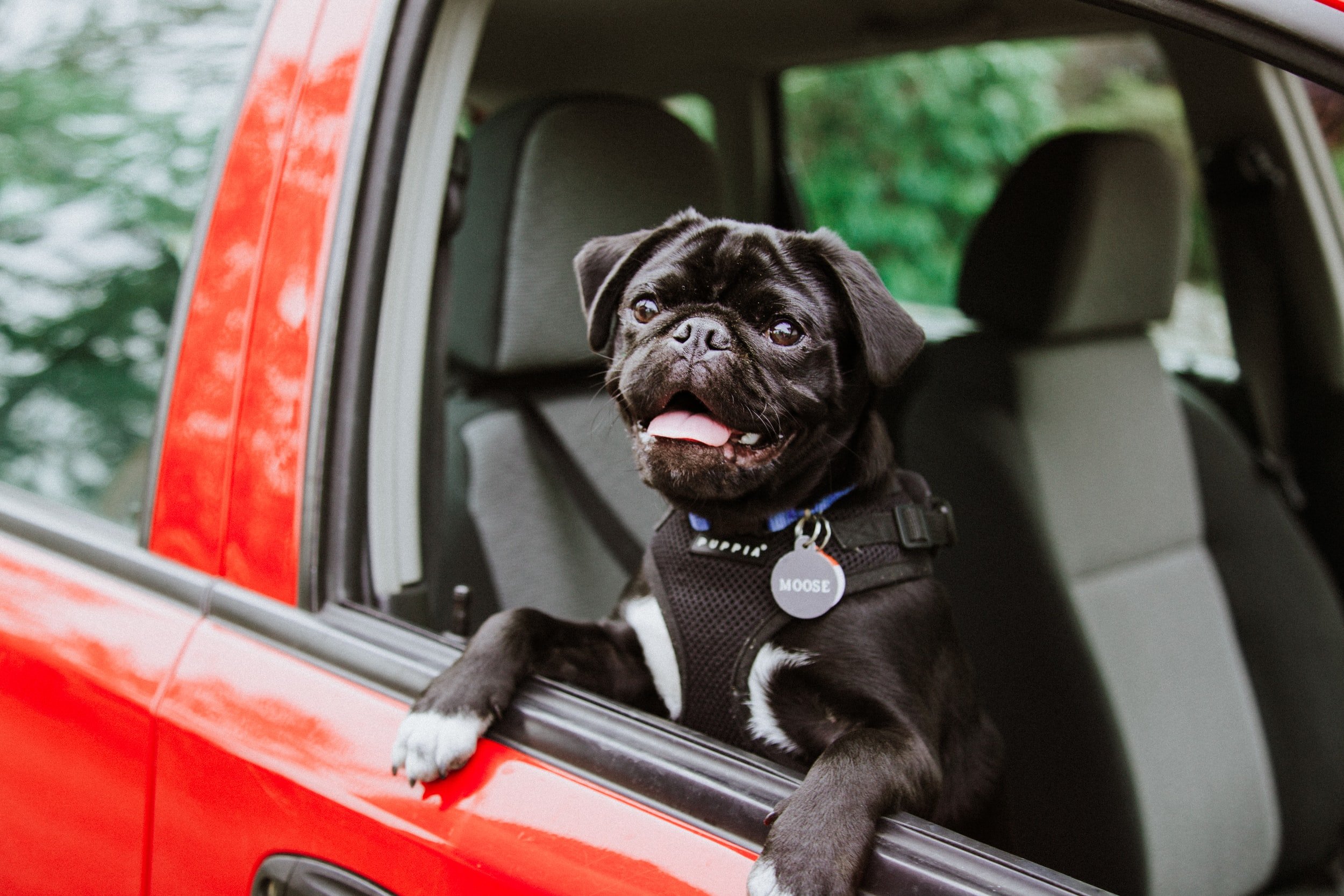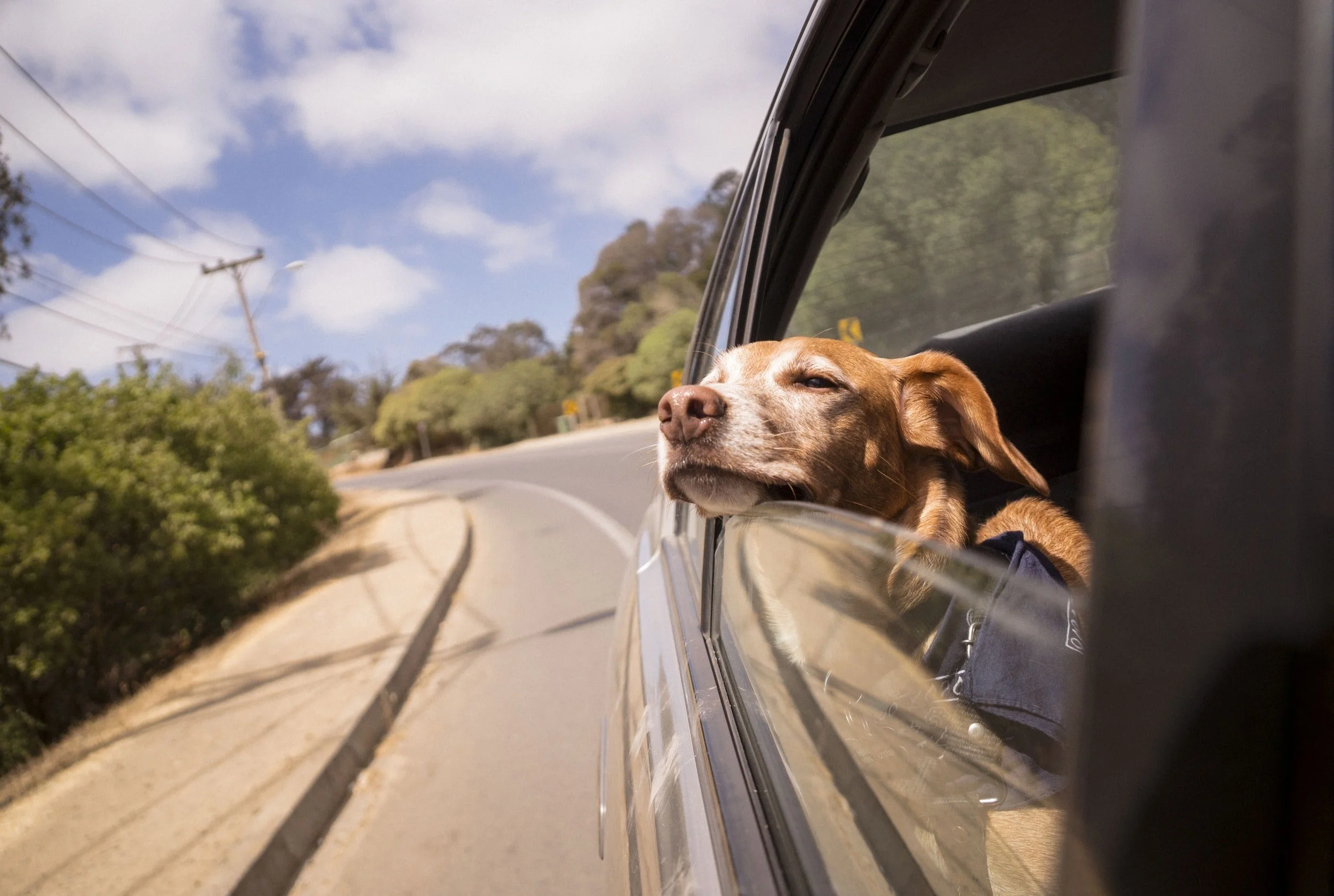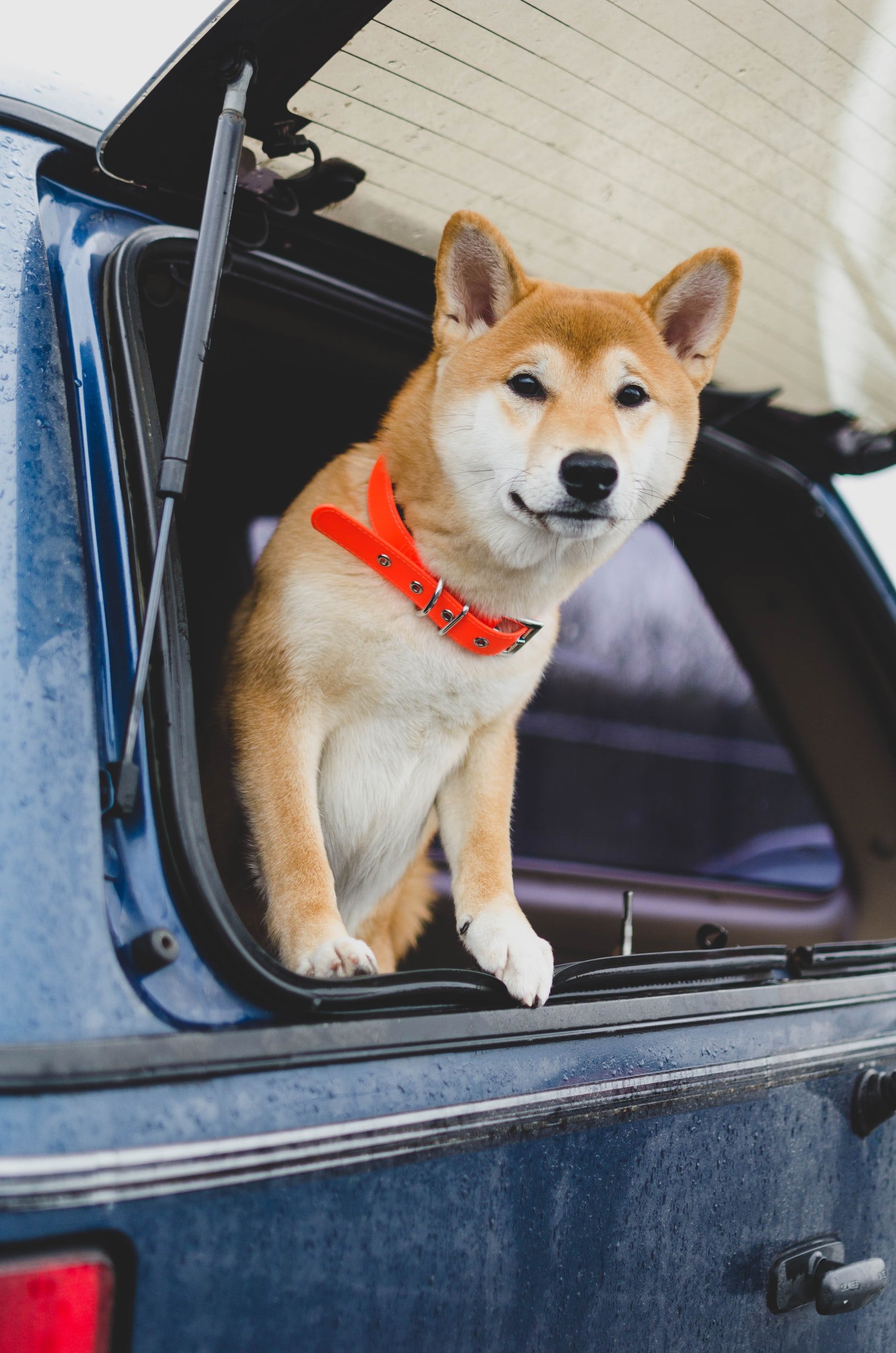Dogs can suffer from car sickness just like humans during car rides or other types of travel. Motion or car sickness is common in dogs. A nauseous dog can make car rides unpleasant, however there are several steps you can take to help your dog feel more comfortable.
What causes car sickness in dogs?
The main reason dogs get car sickness is a result of the sensory organ in the inner ear being stimulated or disturbed from repeated motion. This has connections to their balance and the vomiting centre in the brain. Travel anxiety can also contribute to their condition if your dog has experienced trauma or uncomfortable symptoms with past travel.
Car motion sickness is common in puppies, possibly since their inner ears aren’t fully developed yet. They may also have difficulty seeing out the window due to their size. Puppies often outgrow motion sickness by around 12 months of age.
Many adult dogs that don’t travel frequently can become anxious and nauseous during travel. This can be due to lack of conditioning and overwhelming stimuli associated with moving inside a vehicle. This heightened stress can result in vomiting and diarrhoea.
Puppies that have a traumatic first ride may also associate future travel with that stressful event. Adult dogs that experience uncomfortable symptoms during travel or don’t like where the car takes them can start to fear the vehicle and vomit in anticipation even before the vehicle has started.
Some dogs have medical conditions such as middle or inner ear infections, pain from another condition or high blood pressure that can make them nauseous or anxious. Others may be taking medication that can cause vomiting and diarrhoea during travel.
What are the symptoms of car sickness in dogs?
Car sickness often appears as signs of nausea and discomfort including:
Whining
Pacing
Drooling
Panting
Licking lips
Swallowing
Lethargy or inactivity
Vomiting
Diarrhoea
These signs should fade once the car stops moving. If you think your dog is going to be sick, pull over and take them for a quick walk to allow them to temporarily relieve their symptoms and stress.
How can I prevent car sickness in my dog?
Helping your dog overcome car sickness will make necessary trips much easier and can also mean your pet can accompany you on trips more often allowing you to spend more time together. So how can you help your dog overcome car sickness?
“The best way to help your dog overcome or minimise car sickness is to slowly condition them with small steps and trips”.
Start by simply placing your dog in the car, for a bit of “fun” time. Praise them and offer them a treat for good behaviour.
Once they are comfortable with this step, place them in the car and start the engine whilst offering them treats or a favourite toy. There is no need to move the car at this point.
Next, repeat this process, however back out of your driveway and then return.
Next take a trip around the block. Once they are comfortable with this, take your dog on a very short trip.
Gradually work your way up until they are riding comfortably for 20 to 30 minutes.
Continue to offer praise and treats each time for good behaviour and don’t progress to the next step until they are ready. If at any time the dog shows signs of fear or nausea, the training should be stopped and resumed at a level that the dog is comfortable with.
Remember to stay calm and supportive of your dog and never yell at them for whining or showing distress.
Conditioning can take many weeks to months depending on your dog’s past experiences and individual needs.
If you are having difficulties with car travel, talk to your local veterinarian. They can make sure your pet is not suffering from a medical condition and can also offer advice towards helping your dog. Your vet can also prescribe medications to decrease anxiety or nausea.
Tips to minimise car sickness and make car travel more enjoyable for your dog
Withhold food 3-4 hours before travel – an empty stomach will help reduce nausea and the need for frequent toilet stops. You can feed your pet 3-4 hours before leaving so they are fed, but not overfull. Don’t feed them whilst the car is moving, even if it’s a long drive. If your pet needs to eat during a longer trip, feed them at a rest stop and give them time to digest their meal before taking off again.
Use a carrier or safety harness - keep your dog safe and secure by investing in a good fitting pet restraint or well-ventilated crate or carrier. The carrier/crate needs to be big enough for your dog to sit, stand and turn around in comfortably. It should also be sturdy enough to not slip when the car moves and stops.
Provide plenty of fresh air - it can get hot and stuffy in the car, so ensure your pet has plenty of fresh, cool air.
Outside view - helping your dog see outside can alleviate motion sickness in some dogs. Humans and animals can become nauseated when mixed sensory signals are transmitted to the brain. For example, when the eye tells the brain they are stationery but the inner ear senses movement.
Provide fresh water - keep your pet hydrated by supplying and offering bottled water during their trip. Water bottles that hang on the carrier’s door are a great option.
Offer regular breaks - Before leaving, take your pet for a walk or play with them to encourage them to rest or be more relaxed during the trip. Also offer your pet a toilet break before you go. Longer trips require regular breaks to allow your pet to eat, drink, exercise and go to the toilet along the way.
Entertainment and comfort - bring along your pet’s favourite toys, treats and bedding to stop them getting bored, anxious or restless. Adding an item with your scent or that smells like home can also make them feel more comfortable. You can also offer a new toy that is only offered during travel to help them associate car trips with fun.
Essentials – make sure your pet is microchipped and they are wearing a collar with an ID tag for easy identification. Bring a lead and attach it to your dog before your remove them from the car.
Motion sickness can make car rides unpleasant. By taking some preventative steps you can help your dog feel more comfortable and minimise the symptoms, making necessary trips much easier and allowing you to spend more time on outings together. If you are having difficulties helping your pet overcome motion sickness, call us on 03 8784 4444.





